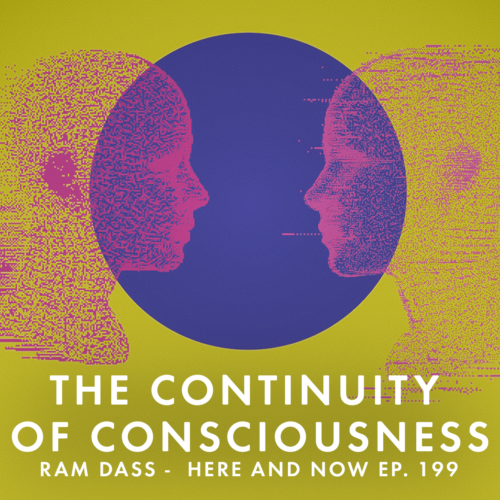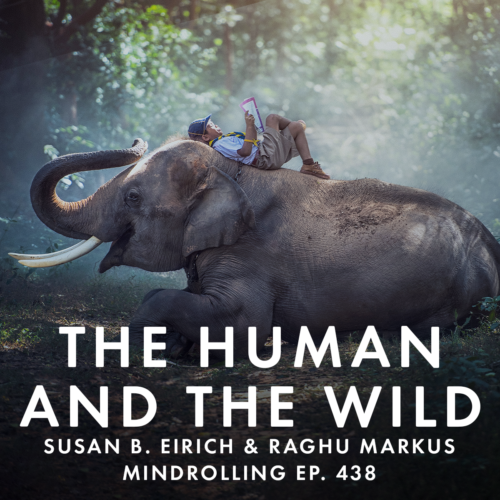A personal blog by a graying (mostly Anglo with light African-American roots) gay left leaning liberal progressive married college-educated Buddhist Baha'i BBC/NPR-listening Professor Emeritus now following the Dharma in Minas Gerais, Brasil.
Saturday, May 7, 2022
Via Be Here Now Network
Ram Dass – Here and Now – Ep. 199 – The Continuity of Consciousness
May 04, 2022

Via Be Here Now Network
Mindrolling – Raghu Markus – Ep. 438 – The Human and The Wild with Susan B. Eirich
May 06, 2022

Via Dhamma Wheel | Right Effort: Developing Unarisen Healthy States
Developing Unarisen Healthy States
|
|
|
|
|
|
|
One week from today: Maintaining Arisen Healthy States
Share your thoughts and join the conversation on social media
#DhammaWheel
Questions? Visit the Dhamma Wheel orientation page.
Via Daily Dharma: The Art of Dharma
The
practice of dharma is akin to the practice of art. With the tools of
ethics, meditation, and understanding, one works the clay of one’s
confined and anguished existence into a bodhisattva. Practice is a
process of self-creation.
Stephen Batchelor, “A Democracy of the Imagination”
CLICK HERE TO READ THE FULL ARTICLE
Friday, May 6, 2022
Via Dhamma Wheel | Right Living: Abstaining from Misbehaving Among Sensual Pleasures
Undertaking the Commitment to Abstain from Misbehaving Among Sensual Pleasures
|
|
|
|
|
|
|
One week from today: Abstaining from Intoxication
Share your thoughts and join the conversation on social media
#DhammaWheel
Questions? Visit the Dhamma Wheel orientation page.
Via Daily Dharma: The Fruit of Giving
Loss
itself is not a gift; loss is just loss. Pain is not okay just because
we can grow from it. We never need to be blown apart just because we can
learn from the act of piecing ourselves back together.
Teri Dillion, “Making Our Own Jewels”
CLICK HERE TO READ THE FULL ARTICLE
Thursday, May 5, 2022
Via Dhamma Wheel | Right Action: Reflecting upon Mental Action
Reflecting Upon Mental Action
|
|
|
|
|
|
|
One week from today: Reflecting upon Social Action
Share your thoughts and join the conversation on social media
#DhammaWheel
Questions? Visit the Dhamma Wheel orientation page.
Via Daily Dharma: Loss Is Just Loss
Loss
itself is not a gift; loss is just loss. Pain is not okay just because
we can grow from it. We never need to be blown apart just because we can
learn from the act of piecing ourselves back together.
Teri Dillion, “Making Our Own Jewels”
CLICK HERE TO READ THE FULL ARTICLE
Tricycle // Podcast
Podcast: Getting Close to the Terror
With Ocean Vuong
In our latest episode of Life As It Is, Buddhist poet and novelist Ocean Vuong sits down with co-hosts Sharon Salzberg and James Shaheen to discuss his latest collection, Time Is a Mother, which explores grief, loss, and survival.
Wednesday, May 4, 2022
O Buda de Ibiraçu
O Buda de Ibiraçu é o maior do ocidente e segundo maior do mundo, perdendo apenas para uma estátua em Hong Kong, que tem 42 metros. Siga-nos no Instagram @belezascapixabas
Via Dhamma Wheel | Right Speech: Refraining from Harsh Speech
Refraining from Harsh Speech
|
|
|
|
|
|
|
One week from today: Refraining from Frivolous Speech
Share your thoughts and join the conversation on social media
#DhammaWheel
Questions? Visit the Dhamma Wheel orientation page.
Via Daily Dharma: Actualize Your Realizations
Realization
needs to be actualized. And having realized the fact that there’s no
separation, an imperative arises to reach out to take care of things.
That’s compassion. We take care of things because everything is this
very body and mind itself. What we take care of is another question.
Jeff Zaleski, “Straight Ahead: An Interview with John Daido Loori”
CLICK HERE TO READ THE FULL ARTICLE
Via Ram Dass - Love Serve Remember Foundation // Words of Wisdom - May 4, 2022 💌
“Even though we find ourselves afraid, and not feeling peaceful, and
less than fully loving and compassionate, we must act. There is no way
you can be in an incarnation without acting. We cannot wait until we are
enlightened to act. We all hear the way in which our silence is itself
an act of acquiescence to a system. That is as much an action as
walking. Since we must act, we do the best we can to act consciously and
compassionately.
But in addition, we can make every action an exercise designed to help
us become free. Because the truth that comes from freedom, and the power
that comes from freedom, and the love and compassion that come from
freedom are the jewels we can cultivate to offer to our fellow sentient
beings for the relief of their suffering.”
- Ram Dass -
From a conversation with Daniel Ellsberg, 1983




